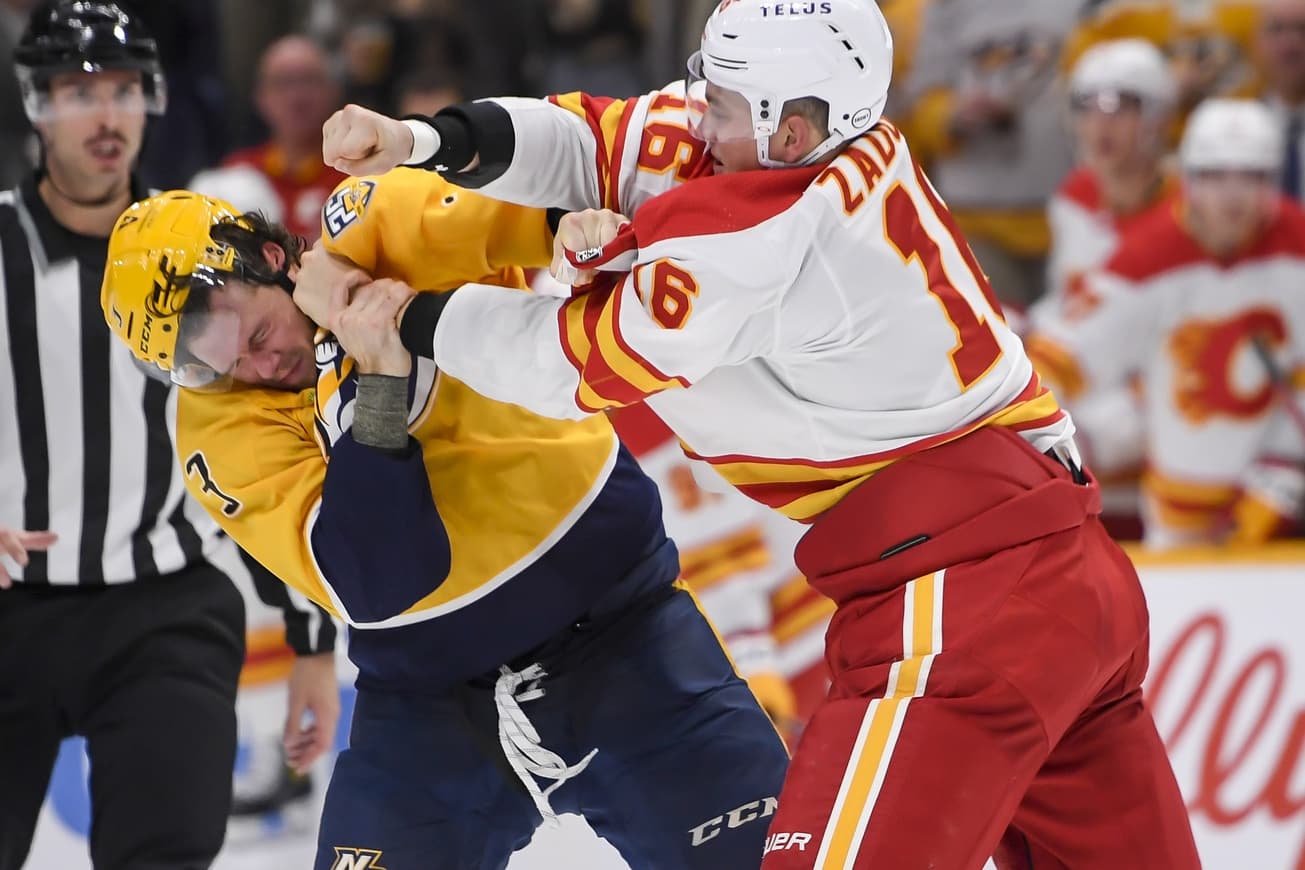Calgary Flames Post-Game: Flames lack offensive bite in loss to Predators
Photo credit: Steve Roberts-USA TODAY Sports
Keep scrolling for the next article
Breaking News
- What’s Going On In The Pacific Division: The Oilers and Canucks have had rough starts to their season
- Flames prospect Jaden Lipinski is headed back to the Western Hockey League as an over-ager
- 3 takeaways from the start of the Flames season
- It’s early, but a lot of Flames prospects are impressing
- Wranglers Game Day: Facing the Firebirds for the first road trip of the year
